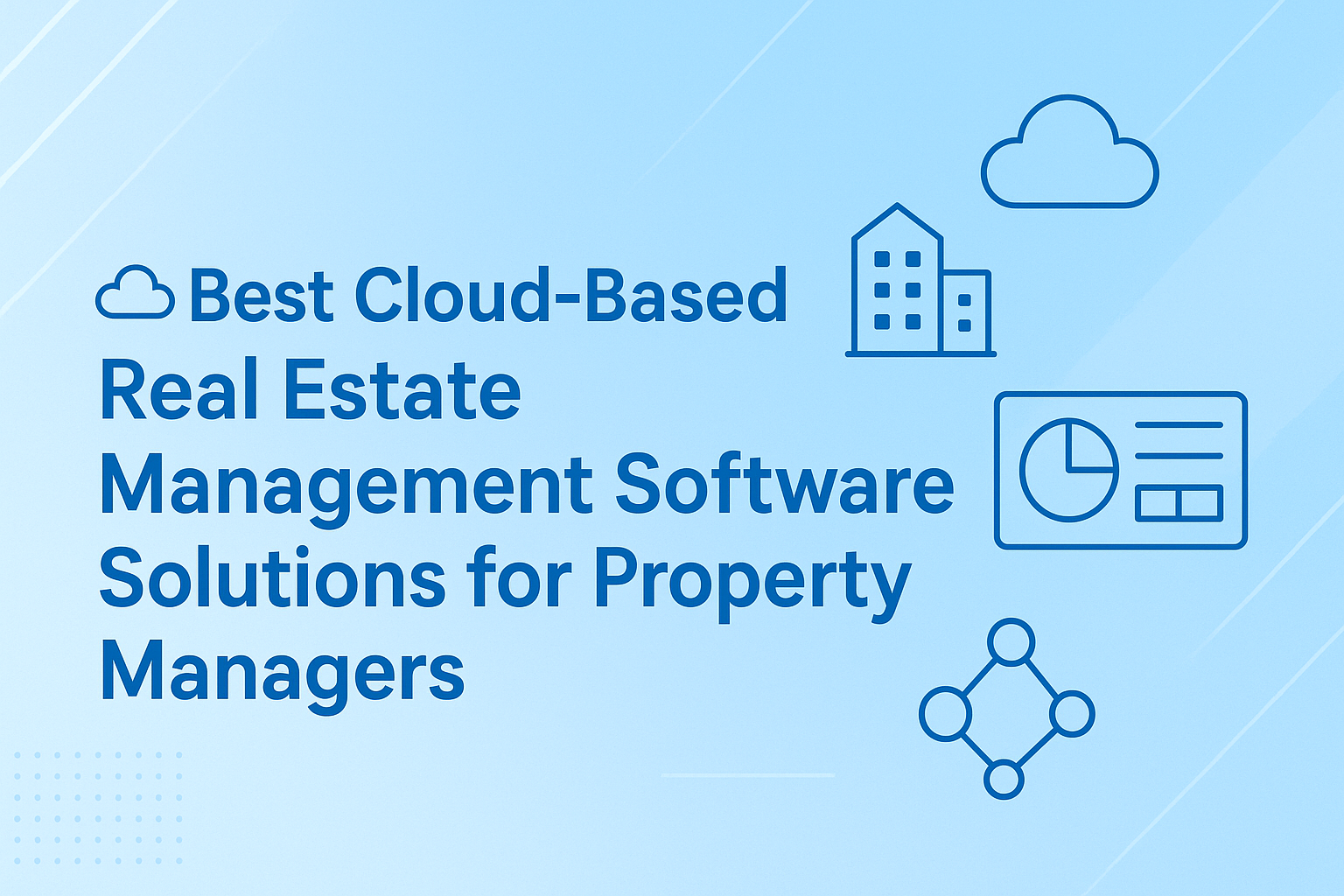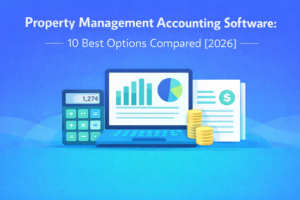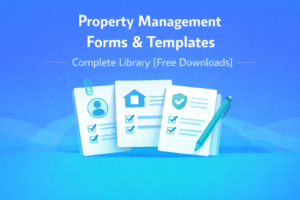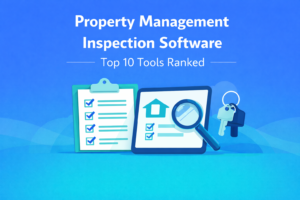
Do you still have spreadsheets, emails, and manual changes clumped together to run your properties? If so, don’t worry. It happens to most property managers. They spend close to 40% of their time on routine admin work like rent collection, maintenance tracking, and so on. Human mistakes, lost lease renewals, and late payments can negatively affect your ROI. That’s why cloud-based real estate management software is needed because it provides you with a master dashboard to handle all properties, tenants, contracts, and payments with ease.
In this blog, we’re going to discuss the top cloud-based real estate management solutions of 2026, what to look for in a platform, and why an end-to-end system like Propertese can revolutionize the way you do business, grow, and expand.
Key Takeaways
- Cloud property management software consolidates all property activities — from rent collection to reporting.
- Applications such as Propertese extend simple management by providing investment, leasing, and ERP integration capabilities.
- Opting for proper software can minimize operational costs by 30–40% and enhance tenant satisfaction.
- Automation + Integration = Scalability. That’s the secret every contemporary property manager must have.
What Is Cloud-Based Real Estate Management Software?
Cloud-based property management software manages fundamental property management functions online, like rent collection and tenant management, maintenance scheduling, and financial reporting.
Unlike on-premise solutions, cloud-based applications provide:
- Real-time access to data via any device
- Automatic updates requiring little IT intervention
- Seamless scalability with an expanding property portfolio
- Integrated reporting for financial and operational insight
Example:
If you oversee 50 rental properties in three cities, a cloud-based system allows you to monitor rent status, maintenance requests, and lease expirations in one place.
Why Cloud-Based Systems Are the Future of Property Management
With the growth of remote teams, borderless investments, and hybrid workspaces, property managers require visibility, automation, and mobility more than ever. Here’s why cloud solutions are the 2026 real estate leading trend:
24/7 Accessibility
Get access to lease information, payment history, and maintenance requests from any device (laptop, tablet, or smartphone).
Automation of Manual Tasks
No more manual rent reminders, chasing tenants, or manually producing invoices because the system does that automatically.
Data Centralization
Syncs leasing, accounting, and maintenance information into a single source of truth.
Improved Security
Cloud software features enterprise-grade encryption and data recovery backups.
Integration with ERP Systems
Tools like Propertese integrate with NetSuite ERP to consolidate financial, leasing, and investment management.
Sustainability and Paperless Operations
Electronic leases, e-signatures, and online payments reduce paperwork (which perfectly aligns with green business models).
What Makes a Good Cloud-Based Property Management Software?
When selecting the ideal platform, look for these key features that characterize top-of-the-line solutions:
| Core Function | Description | Why It Matters |
| Tenant Management | Centralizes tenant profiles, lease agreements, and rent schedules. | Ensures timely renewals and accurate communication. |
| Online Payments | Supports rent collection, deposits, and invoices digitally. | Reduces payment delays and automates receipts. |
| Maintenance Management | Tracks service requests and vendor work orders. | Improves property upkeep and tenant satisfaction. |
| Financial Accounting | Integrates general ledger, accounts receivable/payable, and budgeting. | Gives complete financial visibility. |
| Document Management | Stores contracts, inspection reports, and compliance documents. | Keeps everything secure and accessible. |
| Reporting & Analytics | Provides dashboards and KPIs for performance tracking. | Helps you make data-driven investment decisions. |
Top Cloud-Based Real Estate Management Software Solutions
Let’s examine the top cloud-based real estate management solutions by usability, scalability, and feature depth.
1. Propertese
Best for:
Real estate companies, property managers, and investment firms that need an integrated cloud platform.
Overview:
Propertese is a powerful, cloud-based system that brings together operational, financial, and investment workflows within one application. Unlike traditional tools, Propertese is focused on companies managing large portfolios, in multiple units, with subsidiaries, and across many locations.
Key Features:
- Property and Unit Management
- Investment Management
- Leasing and Rental Management
- Subsidiary Management
- Maintenance Request Management
- Localization
- Contract Management
- Reporting
- Access Management
- Community Association Management
- Document Management
- Email Communication
- Online rent payments & collections
- Leads, Rental Applications & Applicants Management
- Short Term Rentals
- Common Area Maintenance
- Approval Workflow
Why It Stands Out:
- 100% cloud-based with global accessibility
- Localized for regional compliance
- Fully integrates with accounting and ERP systems
- Scalable for commercial, residential, or mixed-use portfolios
Propertese helps property managers save up to 35% of administrative time through automation and centralization.
2. Buildium
Best for:
Independent landlords and small property management firms.
Features:
- Tenant & lease tracking
- Automated rent collection
- Accounting and maintenance tools
- Mobile app for on-the-go updates
Highlight:
Buildium is all about ease and affordability, which makes it ideal for managers dealing with residential properties.
3. AppFolio Property Manager
Best for:
Multi-property managers and HOAs (Homeowners Associations).
Key Strengths:
- AI leasing assistant to automate communication
- Smart maintenance coordination
- Marketing tools for rental postings
- Cloud document storage
AppFolio’s AI assistant “Lisa” responds to tenant questions automatically — an illustration of automation redefining communication in property management.
4. Yardi Breeze Premier
Best for:
Enterprises managing residential, commercial, and mixed-use portfolios.
Features:
- Lease management & renewals
- Rent payment tracking
- Owner and tenant portals
- Customizable financial reporting
Yardi’s strength lies in its ERP-level scalability, making it a good choice for large property investment firms.
5. MRI Software
Best for:
Global property portfolios and complex lease management.
Key Benefits:
- Strong accounting engine
- Facilities management module
- Integration with external financial systems
- Supports corporate, retail, and residential portfolios
MRI excels in flexibility but may require extensive configuration, making it best suited for larger enterprises.
How to Choose the Best Property Management Software for You
Selecting the right platform depends on your portfolio size, team structure, and business model.
Here’s a simple checklist:
- Determine your type of management: Residential, commercial, or mixed-use?
- Verify integration compatibility: Will it interface with your accounting or ERP software (such as NetSuite)?
- Consider scalability first: Will it grow with your business?
- Assess automation: Does it minimize manual effort?
- Evaluating data security and compliance: Is your data being encrypted and backed up regularly?
- Get a demo: Always demo before you buy.
FAQs
Q. What is the best property management software in 2026?
The best property management software of 2026 is Propertese, offering a cloud-based, all-in-one solution for property, tenant, leasing, and investment management — integrated with NetSuite ERP.
Q. Why choose cloud-based property management software?
Because it allows you to control everything from afar, update in real-time, and view your data anywhere — no server setup or IT support needed.
Q. Can I manage multiple properties and subsidiaries using one system?
Yes. Systems like Propertese are built for multi-subsidiary, multi-property management, providing investors with one platform for all operations.
Q. How much does property management software cost?
Pricing varies based on properties, users, and modules. Subscription-based pricing with adjustable tiers is available on most platforms.
Q. Is my data secure in the cloud?
Yes. Encrypted, two-factor-protected, and backed-up data recovery keeps sensitive details safe.
The Growing Demand for Cloud-Based Solutions in Real Estate
According to Gartner reports:
- More than 70% of property management businesses utilize some type of cloud-based software today.
- The global property management software market is expected to grow to $3.5 billion by the year 2028 with an estimated CAGR of 6.5%.
- Cloud adoption has increased the operational efficiency of mid-size property firms by as much as 45%.
Why Propertese Is the Ideal Cloud-Based Solution for Modern Property Managers
Here’s how Propertese differentiates itself from generic property management software:
| Feature | Propertese Advantage |
| Comprehensive Modules | Covers leasing, investments, maintenance, contracts, and financials |
| Cloud Accessibility | Manage everything remotely with real-time updates |
| ERP Integration | Connects directly with NetSuite for complete financial control |
| Customization | Tailored dashboards and workflows for each business type |
| Localization | Supports multi-currency, regional tax laws, and subsidiaries |
| Security | Enterprise-grade encryption and secure access management |
Final Thoughts
Efficiency, automation, and insight are necessities for property management in 2026. With remote operations and expanding portfolios, property managers require an ecosystem. That’s precisely what Propertese delivers — an integrated, cloud-based property management platform created to streamline operations, integrate subsidiaries, and provide you with complete financial and operational control.
Book a demo with Propertese today and experience the smarter way to manage your real estate portfolio.
Table of Contents
Stay Updated
Subscribe to get the latest news, industry trends, blog posts, and updates...




